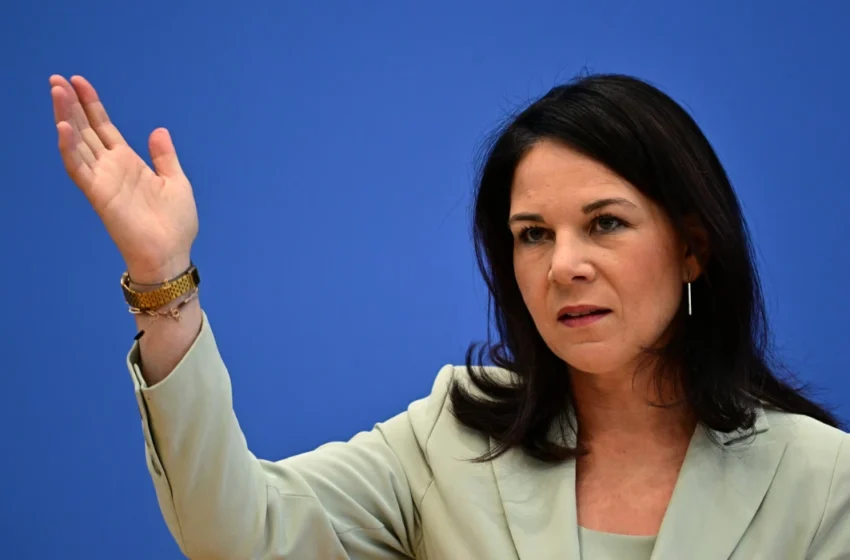
Germany’s Foreign Minister Annalena Baerbock to head UN General Assembly
Germany’s Foreign Minister Annalena Baerbock is to become Germany’s candidate for the new president of the United Nations General Assembly for one year in September.
According to reports this week, Germany’s government, under Chancellor Olaf Scholz, had nominated Baerbock as the new president of the United Nations General Assembly, which Germany had been slated to occupy. In this position, Baerbock’s duties at UN headquarters in New York will be primarily organizational — her chief function will be conducting the plenary sessions — and while the job is restricted to a year, it is deemed a good stepping stone for subsequent roles.
The appointment faced some internal discontent: Germany had announced last year its intent to nominate the highly regarded diplomat Helga Schmid for the position. A former member of the Green Party, Schmid is an experienced professional at the Foreign Ministry and was seen as a key architect of the nuclear agreement finalized in 2015 between Iran, the EU, and other nations. Baerbock reacted to the criticism at a press conference in Lebanon evening when she said her position would be “analogous to many predecessors who were also former foreign ministers or former prime ministers.”
At just 44, Baerbock will continue as foreign minister while the center-right Christian Democratic Union (CDU), Christian Social Union (CSU), and center-left Social Democratic Party (SPD) work towards forming Germany’s next coalition government.
How has Baerbock influenced Germany’s foreign policy?
During Baerbock’s tenure as foreign minister, momentous international crises forced her to work tirelessly: During her time in office, she made 160 trips, visiting some 77 countries — face-to-face diplomacy has never been more important, she once told public television..
During her time in office, she was a strong supporter of sending military supplies to Ukraine, which she visited nine times, including visiting Ukrainian troops at the front.
During the October 7, 2023 attacks by Hamas, Baerbock attempted to express Germany’s continued support for Israel while also negotiating humanitarian support for Gaza.
A third of German embassies around the world are now headed by women. In addition, she attempted to enact a more “feminist” foreign policy by increasing the proportion of female officials in her own ministry, as well as in German embassies around the world.
How did Baerbock rise to prominence in German politics?
During her youth, Baerbock’s political journey was influenced by her parents, who brought her to anti-nuclear demonstrations in the 1980s. On her personal website, she recalls being “moved by global injustices” from her teenage years, which ignited her early desire to become a journalist.
In Hamburg, she studied political science and public law, gained a master’s degree in international law from the London School of Economics, and started a doctorate at Berlin’s Free University. However, she paused her doctoral studies in 2013 after being elected to the Bundestag. Her academic path aligned with a swift advancement in her political life. Joining the Green Party at 25, she quickly rose to become the party leader in Brandenburg just four years later. During this time, she also served as the spokesperson for the party’s European affairs working group and was a board member of the European Green Party.
During her first term in the Bundestag, she maintained her emphasis on European affairs, asserting that she “strived to ensure the German government recognized its international responsibilities as one of the world’s largest economies and to spearhead the German ‘energy transition.'”
Her ascent continued through April 2021, culminating in her victory over Green Party co-leader Robert Habeck in an internal power struggle, making her the party’s first official chancellor candidate in a national election campaign. Her candidacy faced setbacks when it was revealed that her ghostwriter had copied sections from her quickly published book. While her party’s electoral performance that year was disappointing, it paved the way for her career in foreign diplomacy.


